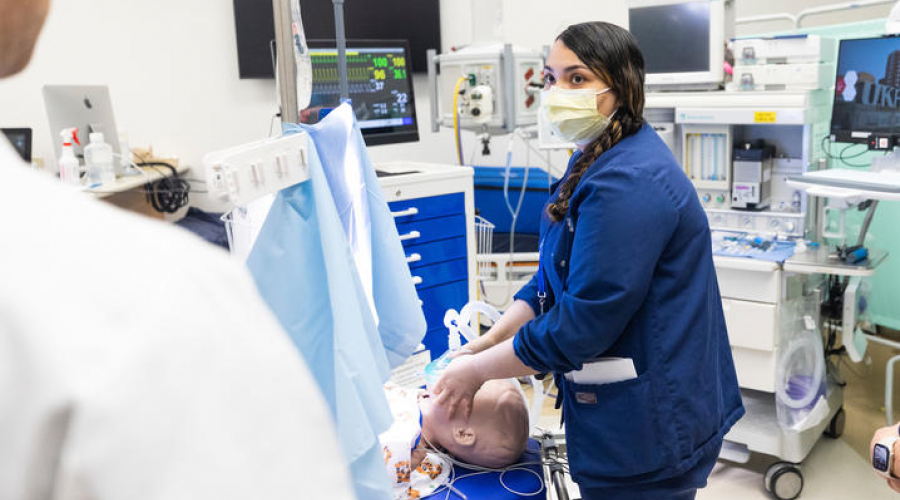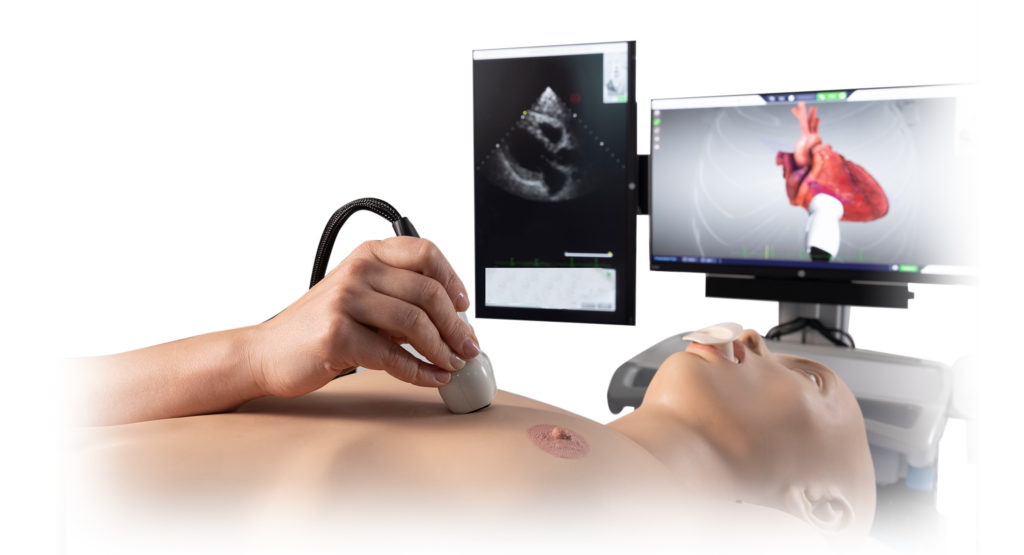
Simulation Training for Residents

Simulation experiences are utilized to inform and enhance resident education in a safe and controlled environment. Sessions provide interactive, interdisciplinary, and immersive simulation-based learning opportunities centered on clinical skill acquisition and crisis resource management, including practice in assimilating data, exercising judgment, and improving teamwork, leadership, and interpersonal communication methods. Simulation experiences correspond with residents’ progression of skills and knowledge acquisition throughout their four years of training. Debriefing sessions follow all simulation learning experiences and serve as a vehicle for constructive discussion about the learning experience and exploration of individual viewpoints for patient care improvement.
CA-1 First Month Orientation
All incoming residents participate in an intensive two day orientation session using the human patient simulator (HPS). Residents are introduced to the HPS and are shown what the simulator is capable of doing both physically and on the patient monitor which is linked to the simulator patient. Basic clinical scenarios are also presented to provide an orientation to the operating room setting and warm up for more advanced scenarios.
Anesthesia Olympics
First year residents participate in a fun, half-day Anesthesia Olympics experience during their first month of training. Participants rotate through six learning stations to demonstrate their current knowledge and skills in preoperative evaluation, anesthesia machine and operating room setup, IV induction, intraoperative crisis, post-anesthesia care unit handoff, and anesthesia induction. By early evaluation and correction (if needed), participants learn how to correctly accomplish these recurrent tasks from the beginning of training. Residents continue to participate in Anesthesia Olympics experiences tailored for their training level yearly throughout their residency.
Subspecialty Simulation
Approximately two days per month are built into the resident didactic series to accomplish simulation sessions dedicated to various subspecialties. High fidelity and task simulators are utilized to train residents on various techniques which include the normal and difficult airway, central and arterial line placement, ACLS mega code, invasive monitors, ultrasound guided regional blocks (including spinal and epidural), lung isolation techniques, and double lumen tube placement.
Task Simulators
The opportunity to practice various anesthesiology procedural skills is available in the Anesthesia Learning Lab (ALL) within the anesthesiology department offices, room N232. Various task trainers are housed within the learning lab and are available to anesthesiology residents upon request. In addition to open hours, residents have regularly scheduled simulation sessions by subspecialty faculty members. Click here to see to see the various task simulators housed in the ALL.
Crisis Resource Management
Residents are trained on crisis resource management using simulation training. Specific protocols and algorithms, such as the difficult airway algorithm, and components of effective crisis resource management are introduced and reinforced. Simulation improves the learner’s problem recognition, proper diagnosis, and the best treatment. It is also used to alert residents to the anatomy of critical events, common errors, and ways to avoid potentially harmful errors.
Research
Residents can choose simulation to be a focus of a medical education research project. Recent resident research projects include:
- Patient simulation for training in crisis resource management of regional anesthesia complications
- Software-based simulation for resident physician training in the management of a temporary pacemaker
- Fourth-year physiology
- The obstructive physician
Monthly Learning Labs
Monthly learning labs focusing on specialty and subspecialty anesthesiology topics are held once per month, with the exception of July, with AM and PM sessions to accommodate resident schedules. Labs incorporate high-fidelity simulation, task training, and lecture. Previous topics include mechanical perfusion, trauma, ENT subspecialty topics, OB anesthesiology, and more.